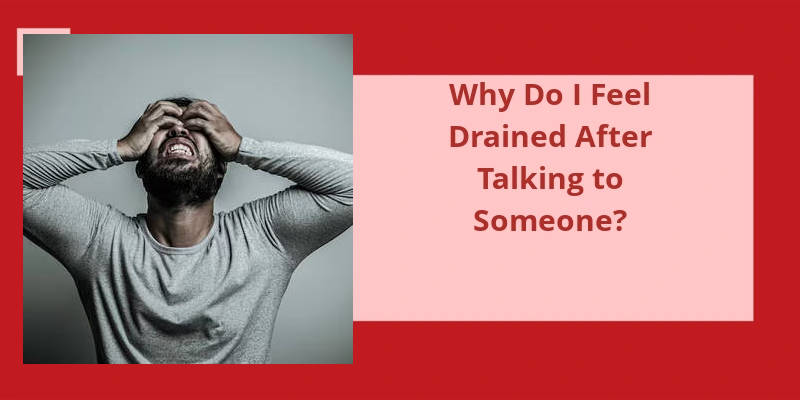However, some people claim that they’ve an innate ability to sense when something bad is about to happen, even in the absence of any obvious danger. This phenomenon, known as premonition or precognition, has been talked about for centuries and has been the subject of much speculation and debate. While many skeptics dismiss it as superstition, there are numerous anecdotes and scientific studies that suggest that some people may indeed have a sixth sense when it comes to impending danger. So, can you sense when something bad is about to happen? Let's delve deeper into this fascinating topic and find out.
What Does It Mean When You Have a Feeling That Something Bad Is Going to Happen?
This feeling or sense can be a powerful and often confusing experience for many people. It can manifest in many ways, such as a deep sense of unease, anxiety, fear, or even panic. It can also be accompanied by physical symptoms such as sweaty palms, an elevated heart rate, or a feeling of heaviness in the chest.
Forebodings are often associated with times of change or uncertainty, such as periods of personal growth, upheaval, or crisis. They can also be linked to events or situations that are beyond our control, such as natural disasters or political unrest. Some people may also experience forebodings in response to their own personal struggles, such as health concerns, relationship issues, or financial troubles.
One of the most common explanations for forebodings is the idea of intuition or psychic ability. Some people believe that our subconscious mind is capable of picking up on subtle cues and signals that are beyond our conscious awareness. Others believe that there’s a spiritual or metaphysical aspect to forebodings, and that they’re a way of receiving messages from a higher power or the universe.
Despite the many theories and explanations for forebodings, it can be difficult to know exactly what they mean and what, if anything, we should do in response to them. Some people choose to ignore these feelings and carry on with their daily lives, while others may take them as a warning and try to prepare for the worst.
Anxiety is a perfectly normal response to stressful situations. However, it can also manifest in ways that may seem irrational or unfounded. One common symptom of anxiety is the feeling that something bad is going to happen. This persistent sense of foreboding can be nearly debilitating for some individuals, causing them to live in a constant state of fear and anxiety. In the following sections, we will explore the relationship between anxiety and catastrophic thinking, and discuss ways to manage these overwhelming emotions.
Can Anxiety Make You Think Something Bad Is Going to Happen?
It’s a common human emotion that’s characterized by feelings of fear, worry, and apprehension. This distressing feeling is usually brought about by an imminent event that entails high levels of uncertainty, such as taking an exam, going for a job interview, or attending an important event. In a situation such as this, our minds typically wander towards the worst possible outcome, and this is where anxiety sets in.
The feeling of anxiety isn’t all bad, as it serves as a warning sign that something might be wrong or dangerous. However, when it becomes excessive and starts to interfere with our daily lives, it can be debilitating and harmful to both our mental and physical health. Ongoing anxiety can cause issues such as sleep disturbance, fatigue, and even physical pain.
One significant way anxiety can affect our thinking is by making us worry excessively, sometimes to the point where we anticipate very unrealistic and catastrophic outcomes. This type of thinking is what doctors refer to as catastrophic thinking. It’s when we think that the worst possible scenario will happen even though the chances are relatively low. This type of thinking will often leave us feeling anxious, stressed, and powerless.
Anxiety can also make us become hyper-vigilant towards our surroundings and internal processes, leading us to over-analyze our thoughts and behavior. This can further fuel our anxiety, leading to deepening feelings of fear, anxiety, and worry.
If left unchecked, chronic anxiety can lead to further complications such as depression and even substance abuse disorders. This is why seeking professional help early on is crucial in managing and treating anxiety.
Anxiety can make us think that something bad is going to happen by fueling our worries and leading us to expect the worst possible outcomes.
Intuition is a powerful force that guides our decision-making and perception of the world around us. It often manifests as a feeling or a sense, and can be difficult to explain or articulate. However, many people believe that intuition is an important part of navigating through life, and that learning to trust your instincts can lead to greater success and happiness. So what does it mean when you’ve intuition that something is going to happen? Let’s explore this phenomenon in more detail.
What Does It Mean When You Have Intuition That Something Is Going to Happen?
Intuition is a powerful tool that’s been used since the beginning of time. Some people believe it’s a sixth sense and has the ability to perceive things beyond the physical senses. It’s often described as a gut feeling, a hunch or a twinge in the back of your mind. It’s important to listen to your intuition and trust it.
It can help us avoid danger, make important decisions and connect with others on a deeper level. However, it’s important to balance our intuition with logic and rational thinking. We can’t rely solely on our feelings and must consider the facts and evidence when making important decisions.
It’s a powerful tool that can help us navigate our lives and connect with others on a deeper level.
How to Develop Your Intuition: Tips and Exercises to Strengthen Your Intuition
- Start by trusting your gut feelings and acting on them.
- Practice mindfulness meditation to quiet your mind and increase awareness.
- Pay attention to your dreams and write them down for analysis.
- Engage in regular self-reflection and introspection.
- Keep a journal of your intuitive insights and experiences.
- Try new experiences and challenge yourself to step outside your comfort zone.
- Practice visualization exercises to tap into your intuition.
- Learn to recognize and interpret your body’s physical reactions to situations.
- Surround yourself with supportive people who also value and trust their intuition.
As humans, we’ve a tendency to rely on our gut feelings, whether it’s making major decisions or dealing with uncertainties in life. Even though we might not always be able to logically explain our intuition, it often proves to be accurate in guiding our actions and influencing our mental states. But what exactly happens in our gut that makes us feel so certain about certain situations? Let’s explore the science behind gut feelings and how they impact our everyday lives.
What Does It Mean When You Have a Gut Feeling That Something Is Going to Happen?
Some people describe this feeling as a sense of knowing, while others may refer to it as a sixth sense. Regardless of what you call it, there’s a sense of intuition that can sometimes come from deep within you.
Often, gut feelings are associated with heightened states of emotion. For example, you may have a gut feeling that something bad is going to happen when you feel anxious or stressed. Similarly, you may feel a sense of connection or resonance with a person or situation when you’re happy or content.
Your brain is constantly processing a vast amount of information, much of which you may not be consciously aware of. However, when certain patterns or connections emerge, your gut feeling can signal to you that there may be something important to pay attention to.
Of course, not all gut feelings are accurate or helpful. Just as our conscious thoughts and beliefs can be biased or flawed, so too can our subconscious mind sometimes lead us astray. However, with practice and experience, many people find that they’re able to develop a stronger sense of intuition that can help guide them through various situations.
For example, you may feel a sense of unease around a particular person or place because you’d a negative experience there in the past, even if you cant remember the details.
The Science Behind Gut Feelings: How Are These Instincts Formed and What Processes Happen in the Brain to Create Them?
Gut feelings, or instincts, are a result of complex processes that occur in the brain and body. These processes involve the nervous and endocrine systems, as well as past experiences and emotions, which all work together to create a feeling or intuition about a situation. While the exact mechanisms behind gut feelings aren’t fully understood, it’s thought that the amygdala, the prefrontal cortex, and the enteric nervous system all play important roles in this process.
Conclusion
However, this feeling can also arise in other situations and is often associated with anxiety and stress. While some people might have a heightened sensitivity to these intuitive warnings, it's important to remember that they aren’t always accurate and can be influenced by external factors. Whether we trust these feelings or not, it's essential to maintain a sense of perspective and not let fear dictate our actions. By practicing mindfulness and self-awareness, we can learn to recognize and manage these sensations, allowing us to navigate life's challenges with greater resilience and clarity.






